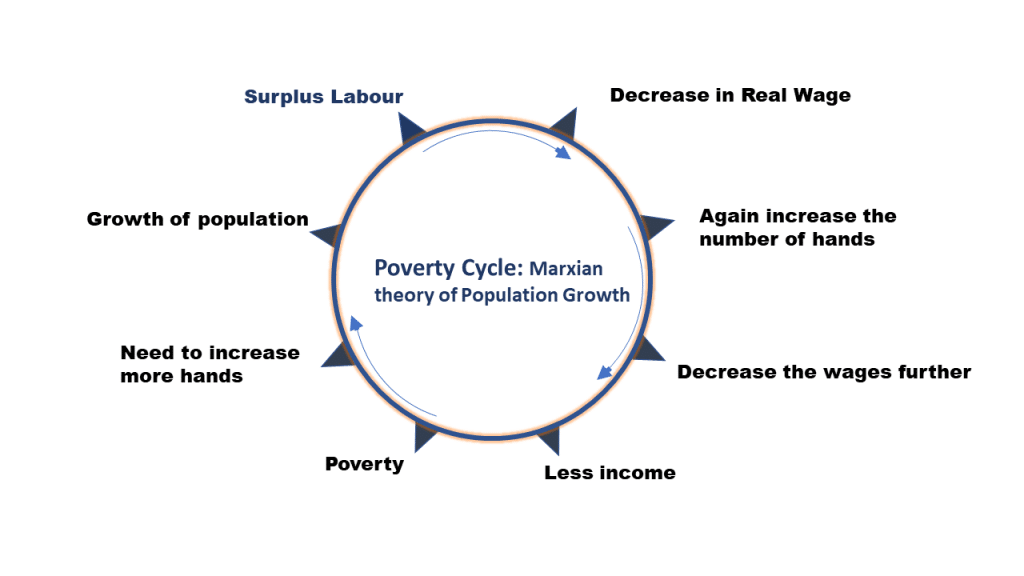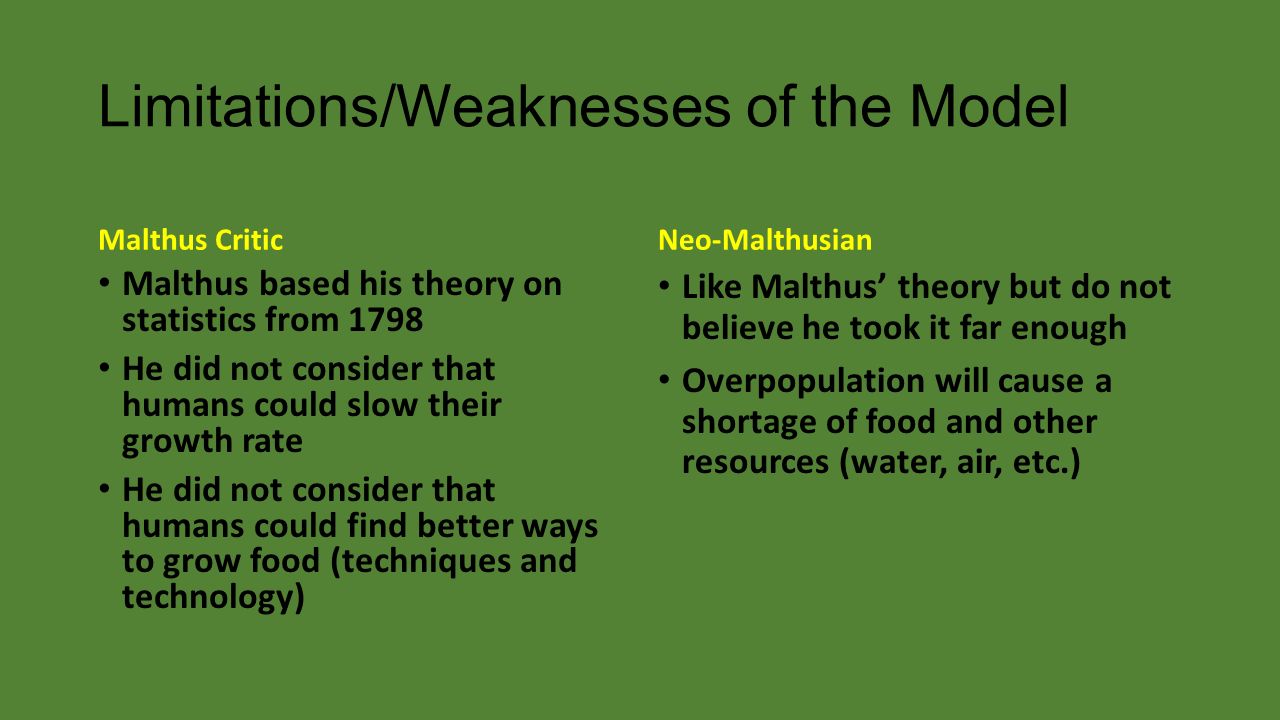Thomas Malthus was an 18th and 19th century economist and demographer who is best known for his theory that population growth would eventually outstrip the ability of the earth to support it. According to Malthus, this would lead to a "Malthusian catastrophe," in which population would be kept in check through a combination of famine, disease, and war. While Malthus's theory has had a significant influence on economic thought and public policy, it has also been the subject of much criticism and debate.
One major disadvantage of Malthus's theory is that it does not adequately account for technological progress and advances in agriculture. Malthus based his theory on the assumption that the earth's resources were fixed and that there was a limit to the amount of food that could be produced. However, over the past two centuries, advances in agriculture and food production have led to a significant increase in the world's ability to feed a growing population. For example, the Green Revolution of the 20th century resulted in the widespread adoption of new crops and farming techniques, which led to a dramatic increase in food production in developing countries. This suggests that Malthus's theory may be overly pessimistic and that the earth's resources are not as fixed as he believed.
Another disadvantage of Malthus's theory is that it does not take into account the impact of social and economic factors on population growth. Malthus argued that population would grow exponentially while resources would grow only linearly, leading to a "Malthusian crisis." However, research has shown that population growth is influenced by a variety of social and economic factors, such as education, income, and access to healthcare. For example, countries with higher levels of education and income tend to have lower fertility rates, which means that their population growth is slower. This suggests that Malthus's theory does not adequately consider the role that social and economic factors play in shaping population trends.
A third disadvantage of Malthus's theory is that it has been used to justify a number of controversial policies, such as eugenics and population control. Malthus's ideas about population and resources have often been used to argue that certain groups, such as the poor or people of color, should be restricted from having children or that their reproduction should be controlled in some way. These policies have been criticized for being unethical and for promoting discrimination and inequality.
In conclusion, Malthus's theory of population has significant disadvantages, including its failure to account for technological progress and the role of social and economic factors in shaping population trends, as well as the controversial policies it has been used to justify. While Malthus's theory has had a lasting impact on economic thought and public policy, it is important to recognize its limitations and to consider alternative perspectives when thinking about population and resources.








